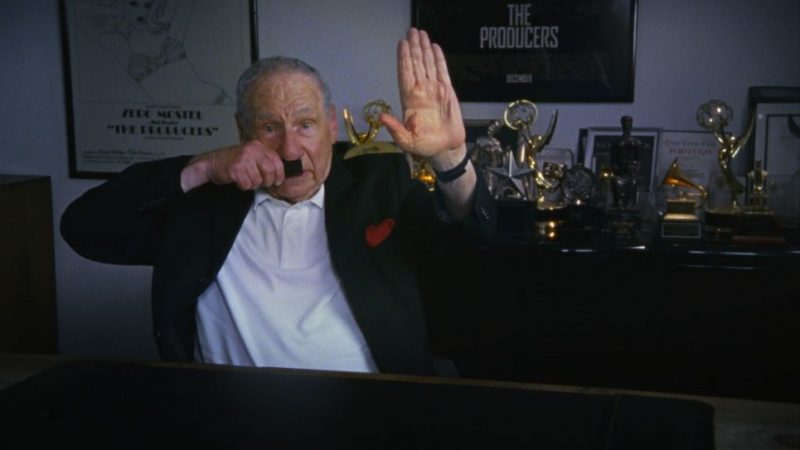How should we feel about jokes about the Holocaust? That is the question posed by the new documentary The Last Laugh. The film includes interviews with Jewish comedians and a cinema verite portrait of an elderly Holocaust survivor, Renee Firestone, who didn’t let the Nazis take her sense of humor.
The Last Laugh was a feature documentary at the Tribeca Film Festival in Manhattan. Director Ferne Pearlstein not only explores the limits of free speech and humor today, she also explores how the Shoah victims and survivors used humor to heal and protect themselves.
In the movie, a survivor discusses how they would mock the orders from the guards.
Footage shot at the Theresienstadt concentration camp shows inmates on stage, performing comic skits and a children’s opera. “You have to remember, these were people who were living their lives,” Pearlstein, who co-wrote the film with her husband, Robert Edwards, said in an interview last week. “They didn’t think, ‘I am going to die.’ They still might have made a joke because they were living their lives.”
Comedians, many of them Jews themselves, took the survivors’ use of humor as tacit permission to make jokes about the Holocaust. Mel Brooks, who appears frequently in the film, remembered his days doing stand-up comedy in the Borscht Belt. “I got a lot of laughs with Hitler,” he says, calling it his revenge on the Nazis.
He’d go on to make the 1968 movie The Producers, which stunned audiences with its chorus-line Nazis and its prancing Hitler. The shock had largely worn off by the time The Producers had become a hit Broadway musical in 2001, perhaps proving Steve Allen’s famed formula, “Tragedy plus time equals comedy.”
The Producers illustrates a key point: It’s OK to make fun of the Nazis, but it’s less clear when you make fun of the Holocaust. Robert Cary, who survived Buchenwald and had 12 of his immediate family members killed in a concentration camp, was asked how he could appear in Hogan’s Heroes. His response was that the show was set in a POW camp, not a concentration camp.
Brooks insists that he doesn’t care what’s in good taste, but he has his limits. The film discusses the controversy over Joan Rivers’ joke about Heidi Klum. “The last time a German was this hot was when they were pushing Jews into the ovens.” In the film, Abe Foxman, former head of the Anti-Defamation League and a child survivor of the Holocaust, complains that the joke trivializes the Holocaust. Even Brooks says, “I can’t go there.”
Still, for all its tastelessness, Rivers’ joke made fun of Germans, not Jews. After 70 years, the Germans still can’t avoid the blame. Actually, none of the jokes in the film are as tasteless as the commentators suggest. Commentators include Ron Reiner, Gilbert Gottfried, Lisa Lampanelli, and Larry Charles.
Only Sarah Silverman comes close to crossing into taboo territory in the film. A clip from her 2005 concert film Jesus Is Magic shows Silverman remembering how her niece referred to “60 million” dying in the Holocaust. Silverman corrects her, saying that the correct number is “6 million.” When the niece asks what the difference is, Silverman replies, “Because 60 million would have been unforgivable, young lady.”
To understand Silverman’s joke, you need to be familiar with her on-stage personality of a person that is too self-involved to know that she is a bigot. Renee Firestone clearly doesn’t get that. The film shows her watching the Silverman clip. “I don’t think this is funny,” she says.
Pearlstein remembers that moment being one of the most uncomfortable in all of the filming. “Renee is so resilient,” the director says. “She uses her sense of humor to get through things, but she doesn’t think everything is funny. That makes her a perfect guide for that reason.” Including Firestone’s story, Pearlstein says, “lets us remember what we’re laughing at.”
The Last Laugh does not give or take away permission to audiences about what they should find funny. If Foxman comes across as a downer in the movie, it’s because the film is a comedian’s film. Comedians have only one obligation – to make people laugh. As Judy Gold states early in the film, “It’s all about the funny.”
